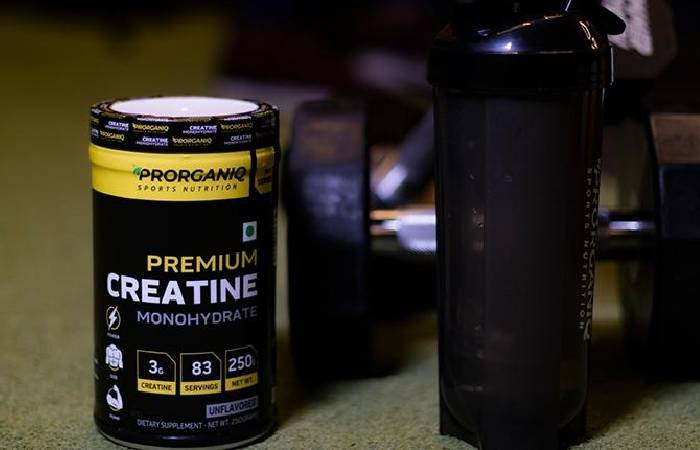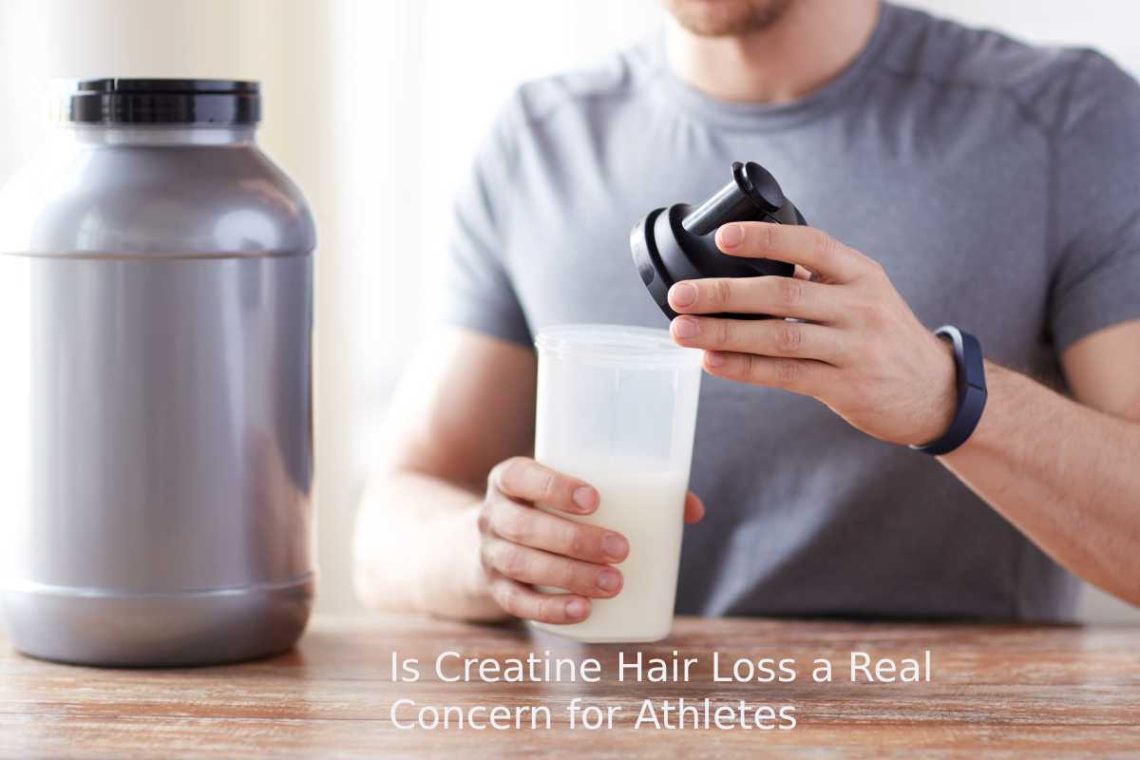Creatine Hair Loss — Almost everyone knows the possible relationship between Creatine and Hair Loss. It is likely that if you do sports, you have never heard of this substance since it is a supplement used to improve sports activity and increase muscle mass. It became famous after the ’92 Olympic Games in Barcelona when Linford Christian admitted taking it and said it helped him perform better.
Several years have passed since then, but it is still one of the most popular and sought-after training supplements and one of the most studied on the market. Along with the arrival of this supplement, a rumor began to spread that Creatine causes alopecia, which is why it is a very common question that athletes ask.
The questions we will answer below will inevitably arise: What is the Truth About Creatine Hair Loss? Is there any scientific evidence that Creatine causes hair loss?
What exactly is Creatine?

Let’s take a moment to clarify what exactly Creatine is. Creatine combines three different amino acids: glycine, arginine, and methionine. It is important to emphasize this because there is a lot of confusion about it. Many people think that Creatine is a steroid. It is not and works entirely differently than steroids.
The body produces Creatine, which is also found in certain protein-rich foods such as red meat and fish. Therefore, creatine is not a compound synthesized in the laboratory; it is natural. It is also not a stimulant, although it can sometimes be combined with stimulant substances (such as caffeine) in some pre-workout formulas.
How does Creatine work?
Creatine, that popular organic compound, is best known for easing the recycling of adenosine triphosphate (ATP) in the brain and muscles. We could say that ATP is the energy currency of cells. Therefore, Creatine helps replenish energy in the brain and muscle cells. It makes Creatine a very well-known and sought-after nutritional supplement, especially, as we have said, for athletes since they use it as extra energy support.
Many athletes (runners, basketball players, rugby players, soccer players, etc.) take Creatine and recognize it. In addition to serving with energy, Creatine also helps increase muscle mass, improving overall performance and strength. Additionally, many studies have found that taking Creatine can help prevent neurological disorders.
The human body produces Creatine, but at deficient levels, so taking creatine supplements increases its amount, which can cause positive and negative effects. One of these adverse effects could be that Creatine causes hair loss. But before we get to this point, let’s look at some benefits of using Creatine.
Benefits of Using Creatine
- Increases Energy Levels of Muscle Cells
- Improves Muscle Mass
- Excellent for High-Intensity Exercise
- May Improve Parkinson’s Disease
- Relieves Neurological Diseases
- Improves Brain Function
- Beneficial for Fatigue and Overall Body Performance
- Enhances Recovery Post-Workout
- Supports Muscle Hydration
- Increases Strength and Power
- Improves Sprint Performance
- Reduces Muscle Damage and Inflammation
- Supports Muscle Fiber Growth
- Boosts Anaerobic Capacity
- Enhances Cognitive Performance
Can Creatine cause hair loss?
The connection between hair loss and Creatine was first noted in 2009 in a study published in the Clinical Journal of Sports Medicine by Johan van der Merwe. The study looked at the side effects of creatine use in rugby players and found that regular use of creatine supplements increased dihydrotestosterone (DHT) levels by over 50%.
DHT is a powerful hormone made from testosterone, the primary sex hormone in men. Testosterone helps build muscle mass and body hair, so many men are hairier than women. For testosterone to work properly, it needs to be converted to DHT, and Creatine speeds up this process. Higher DHT levels are linked to androgenetic alopecia, a common form of hair loss in men.
Although the study didn’t specifically focus on hair loss, the increase in DHT levels suggested a possible connection. DHT can affect hair growth by speeding up the hair cycle, leading to hair loss. So, taking Creatine might raise DHT levels and potentially cause hair loss.
Why can Creatine Hair Loss?
Taking Creatine increases the levels of the hormone DHT, and DHT alters hair growth by accelerating the cycle of each hair follicle, which can cause hair loss.
Hence, after the discovery of the increase in these levels of DHT, the possibility was raised that taking Creatine could cause hair loss.
How Creatine Affects Hair
- Increases Dihydrotestosterone (DHT) Levels
- Potential Link to Androgenetic Alopecia
- May Accelerate Male Pattern Baldness
- Hormonal Changes
- Conversion of Testosterone to DHT
- Potential for Increased Hair Loss
- Impact on Hair Follicle Health
- Possible Thinning of Hair
- Influence on Hair Growth Cycle
- Higher Risk for Individuals Predisposed to Hair Loss
- Alteration in Scalp Oil Production
- Potential for Increased Shedding
- Change in Hair Texture
- Possible Effects on Hair Strength
- Influence on Overall Hair Density
Creatine Hair Loss Side Effects
Although it is natural, having high amounts of Creatine in the body can cause some side effects. Creatine can be taken orally in prescribed doses without any danger. However, the long-term effects can be harmful.
Some side effects usually appear after five years, so it is recommended not to consume Creatine for more than five years in a row.
Among these side effects, we find the following :
- Possible hair loss.
- Water retention.
- Muscle cramps.
- Fatigue.
- Nausea.
- Weight gain.
- Gastrointestinal pain.
- Dehydration.
- Fever.
- Heat intolerance.
- Dizziness
These side effects depend on each organism’s overall functioning and underlying medical conditions. Some of the worst side effects can damage essential organs such as the kidneys, liver, or heart.

